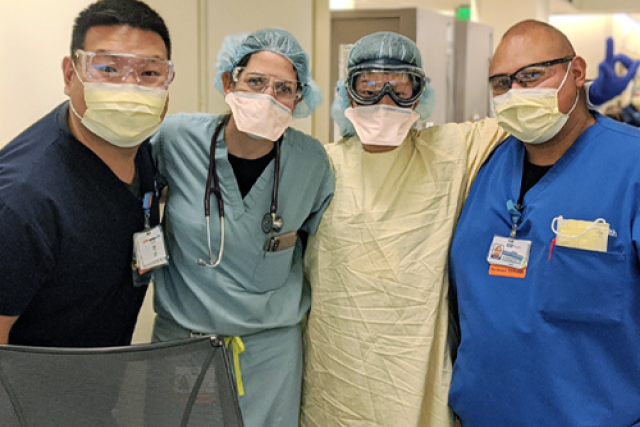As cases of COVID-19 increase, health care workers are increasingly worried not only about their patients and their families but about becoming sick themselves. If you’re a health care worker on the frontlines of COVID-19, it is essential to take care of yourself — so you can take care of others. Read on for specific tips to help you cope with the challenges of delivering care during a pandemic.
Challenges unique to health care workers
Health care workers have unique responsibilities that may expose them to COVID-19, including:
- Triaging potentially infected people
- Performing interventions, often in less-controlled environments
Regardless of your role, the coronavirus-specific challenges are the same and include:
- Meeting the needs and demands of an increasing patient census
- Avoiding infection
- Providing both medical and emotional support to patients
- Balancing work and family responsibilities
- Addressing job-related stress and fear
Stress response to COVID-19
Given the challenges and uncertainty, it is common for health care workers to have both physical and emotional responses to the stress. They include:
Emotional symptoms
It is normal for you to feel:
- Anxiety
- Fear
- Frustration
- Guilt
- Irritability
- Lack of focus
- Sadness
Physical symptoms
You may experience these with or without emotional signs. They include:
- Chest tightness
- Exhaustion
- Gastrointestinal distress
- Headaches
- Insomnia
- Pain
Coping tips for health care workers battling COVID-19
As a health care worker on the front lines of COVID-19, you play a noble role in caring for your community. It is essential for you to reduce the anxiety and fear you may feel with these four strategies:
Gain power through knowledge
- Learn as much about your role as possible to limit feelings of uncertainty
- Brush up on ancillary skills you may need when the surge hits
- Study and follow the protocols that have been established to keep you safe
Meet your emotional needs
- Know your limits and communicate with your supervisor if you have feelings of extreme exhaustion or depression
- Seek medical help if you are concerned because you made contact with a person who has COVID-19
- Balance work and family obligations — create new family routines and take breaks when necessary
Plan ahead
- Identify child care opportunities in the event you need them
- Find alternate accommodations should you become exposed
- Schedule regular meal breaks and social time
Control what you can
- Continue treating patients as you normally would until you are called upon for disaster relief
- Practice physical distancing while delivering high-quality care
- Follow all infection-control protocols
- Stay abreast of changes by following trusted sources
- Shift routine patient care to telemedicine, if possible
Need more coping strategies? Read our comprehensive guide to reducing anxiety and fear from COVID-19. And, stay up to date with coronavirus information from UCLA Health.
UCLA: The link to the coronavirus is in the CTA (next section)
